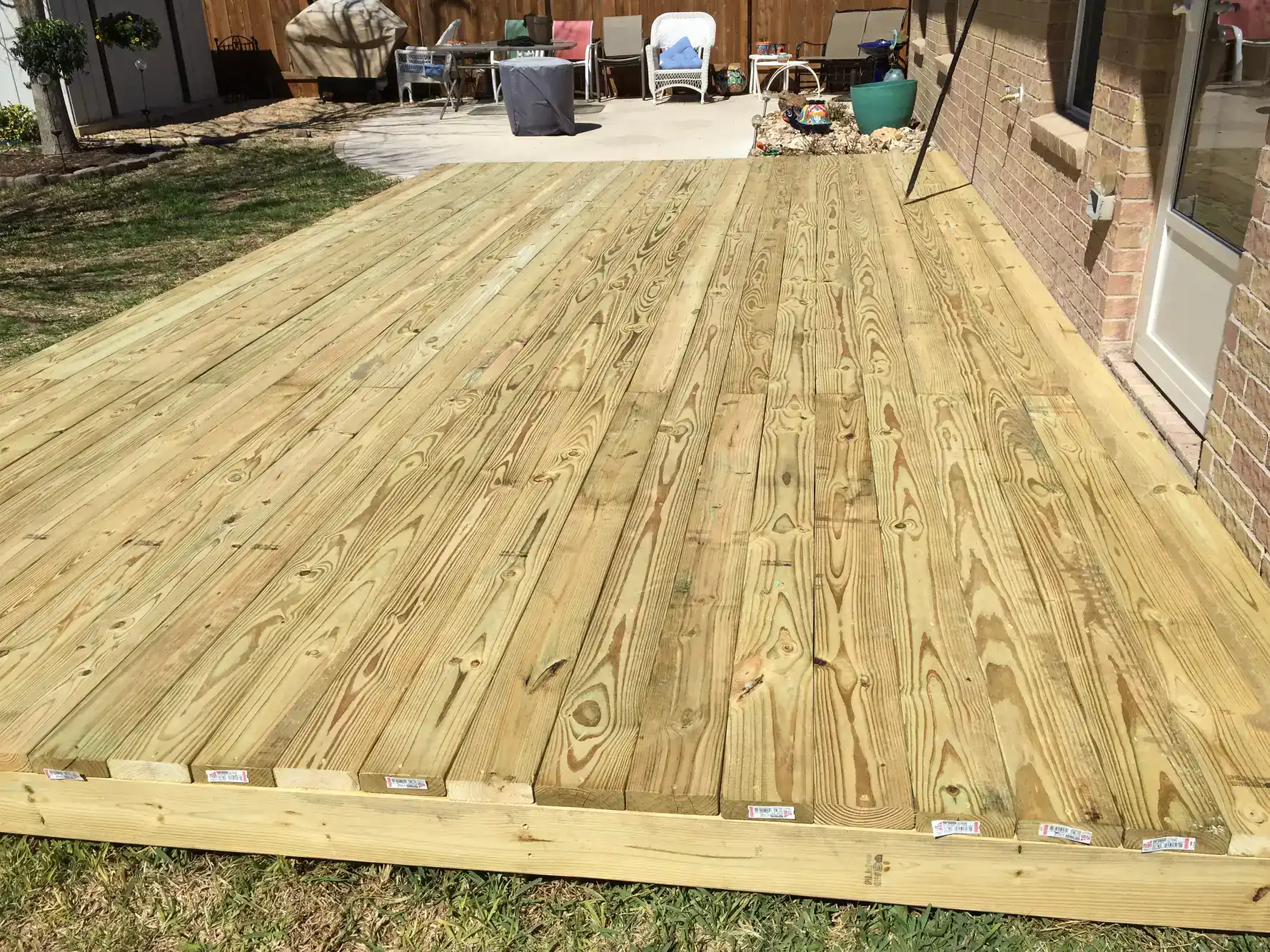
Hear from Our Customers
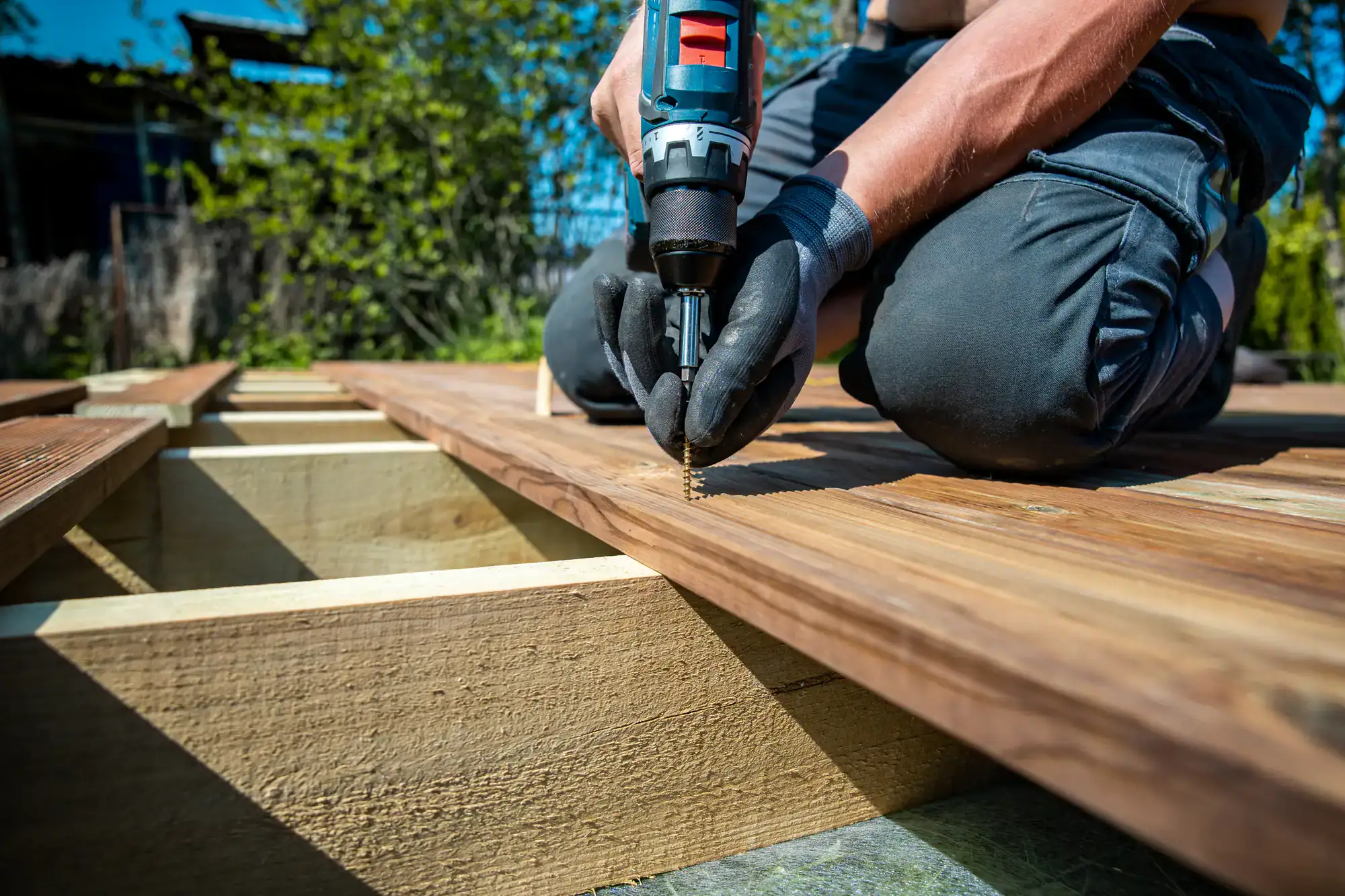
You want to spend summer evenings relaxing on your deck, not sanding and staining it every year. That’s why we focus on materials that actually work in our climate.
Composite decking resists fading, scratching, and staining—perfect for poolside areas and high-traffic entertaining spaces. A simple wash with soap and water keeps it looking new year after year. Hidden fastening systems create smooth surfaces that feel great under bare feet and eliminate tripping hazards.
When your deck is built right the first time, you get decades of outdoor enjoyment without the annual maintenance cycle that comes with traditional wood.
Expressway Roofing and Chimney Inc has been serving Yaphank and Suffolk County homeowners for years, and we understand what works here. Salty sea air, humid summers, and harsh winters demand materials and installation techniques that many contractors don’t consider.
We handle all permits and code requirements—because building without proper permits can result in costly fines or even having to tear down your deck. Our team knows Suffolk County regulations inside and out, so your project moves forward smoothly.
When you work with us, you’re working with contractors who’ve seen what happens to poorly built decks in our climate. We build them right the first time.
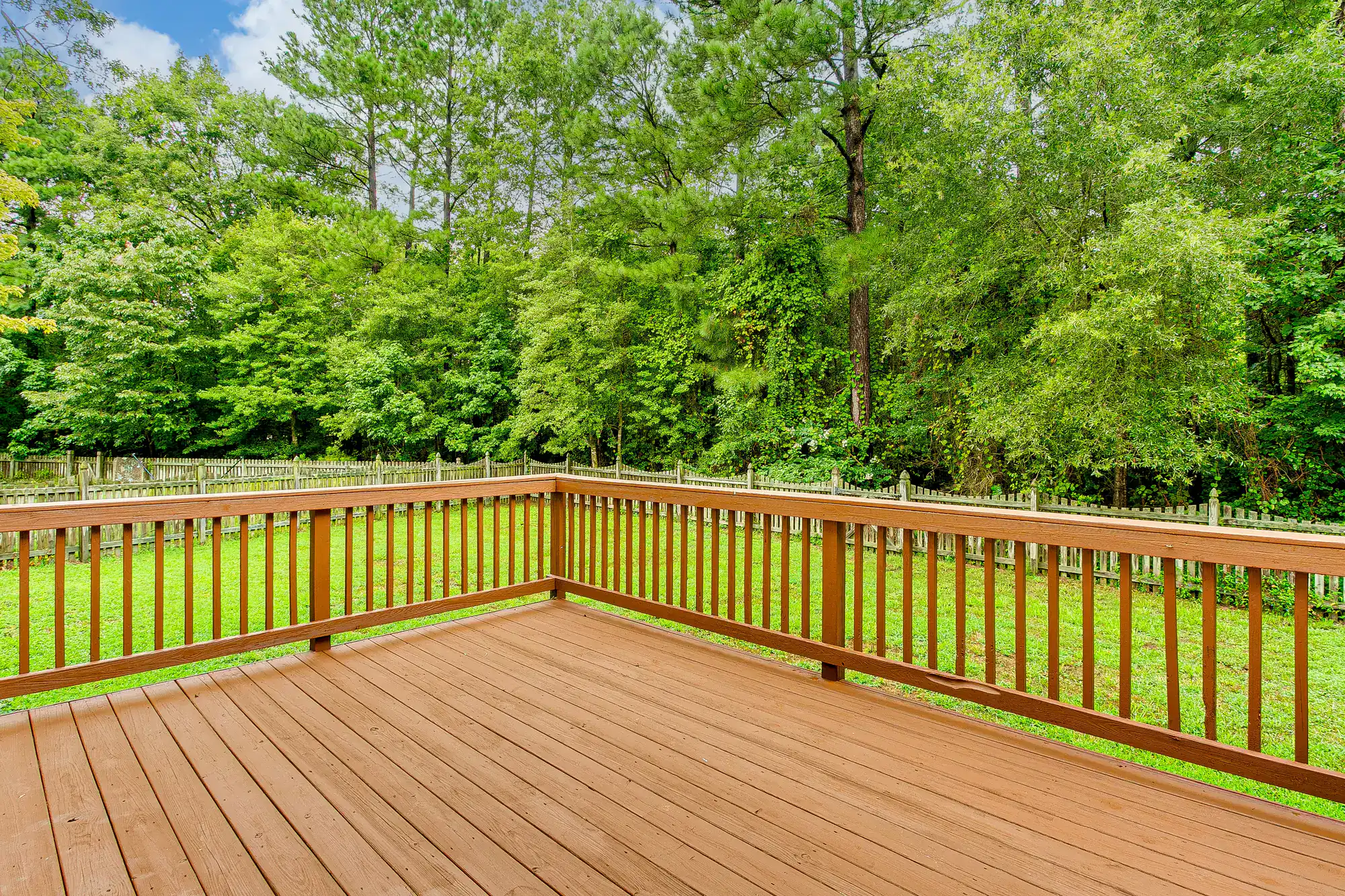
We start with a site visit to discuss your goals and take measurements. No high-pressure sales tactics—just honest assessment of what will work best for your space and budget.
Next, we handle all permit applications and design work. Suffolk County has specific requirements for deck construction, and we make sure everything meets code before we break ground. This prevents delays and costly surprises later.
Installation begins with proper framing using pressure-treated lumber that can handle our coastal environment. We use hidden fastening systems where appropriate and ensure proper drainage and ventilation. The result is a deck that looks professional and performs reliably for decades.
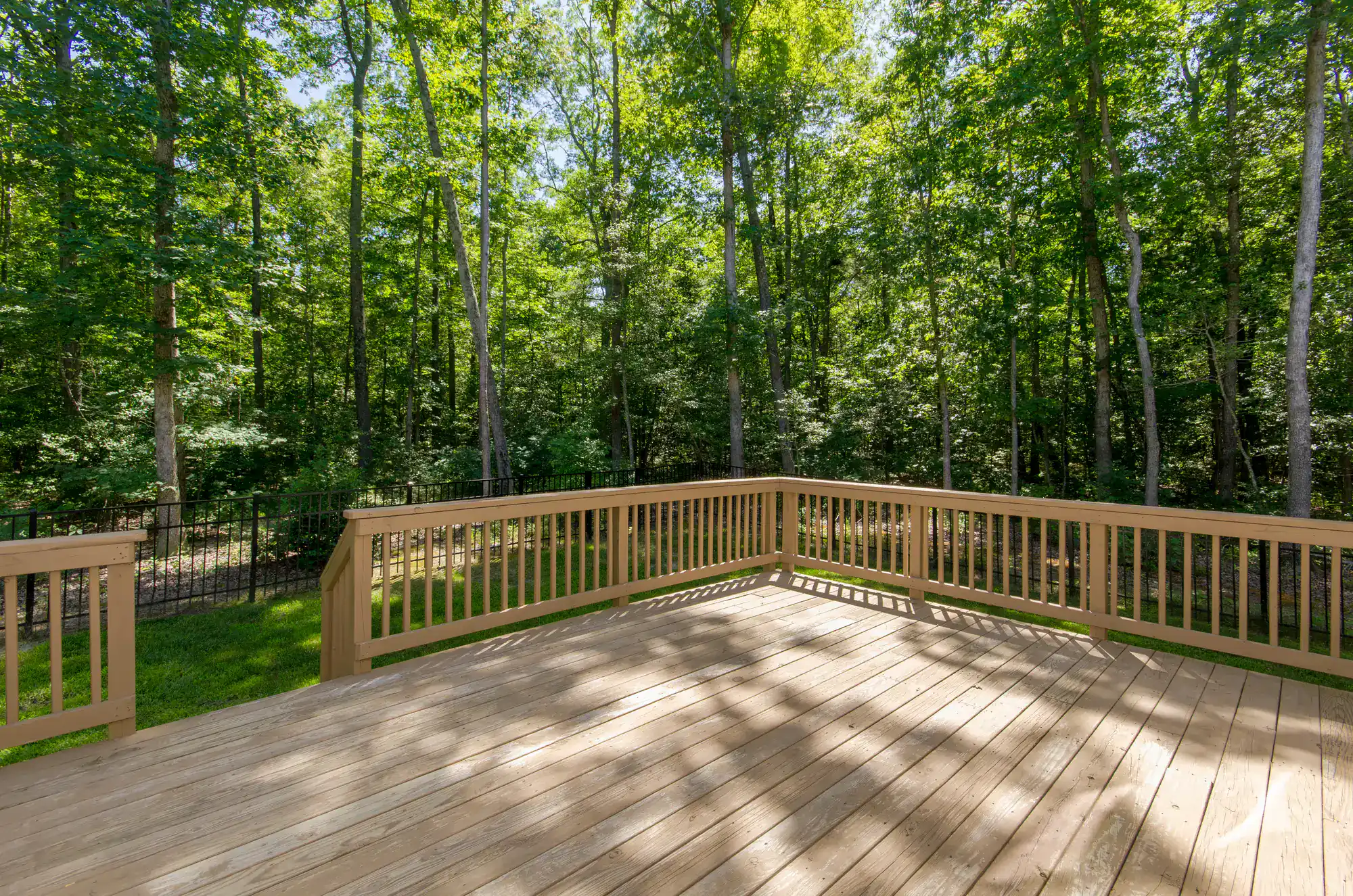
Ready to get started?
Long Island’s coastal environment is tough on outdoor structures. Salt air, humidity, and temperature swings destroy poorly chosen materials quickly. We work with composite decking from trusted manufacturers like Trex and TimberTech—materials specifically engineered for durability.
Composite decking offers the warmth and look of wood without constant maintenance. It won’t rot, warp, or splinter, and it resists termites and other pests common in our area. Many options use recycled materials, making them an environmentally responsible choice.
For homeowners who prefer natural wood, we install pressure-treated lumber, cedar, and exotic hardwoods like Ipe. Each material has specific maintenance requirements, and we’ll walk you through what to expect so you can make an informed decision based on your lifestyle and budget.
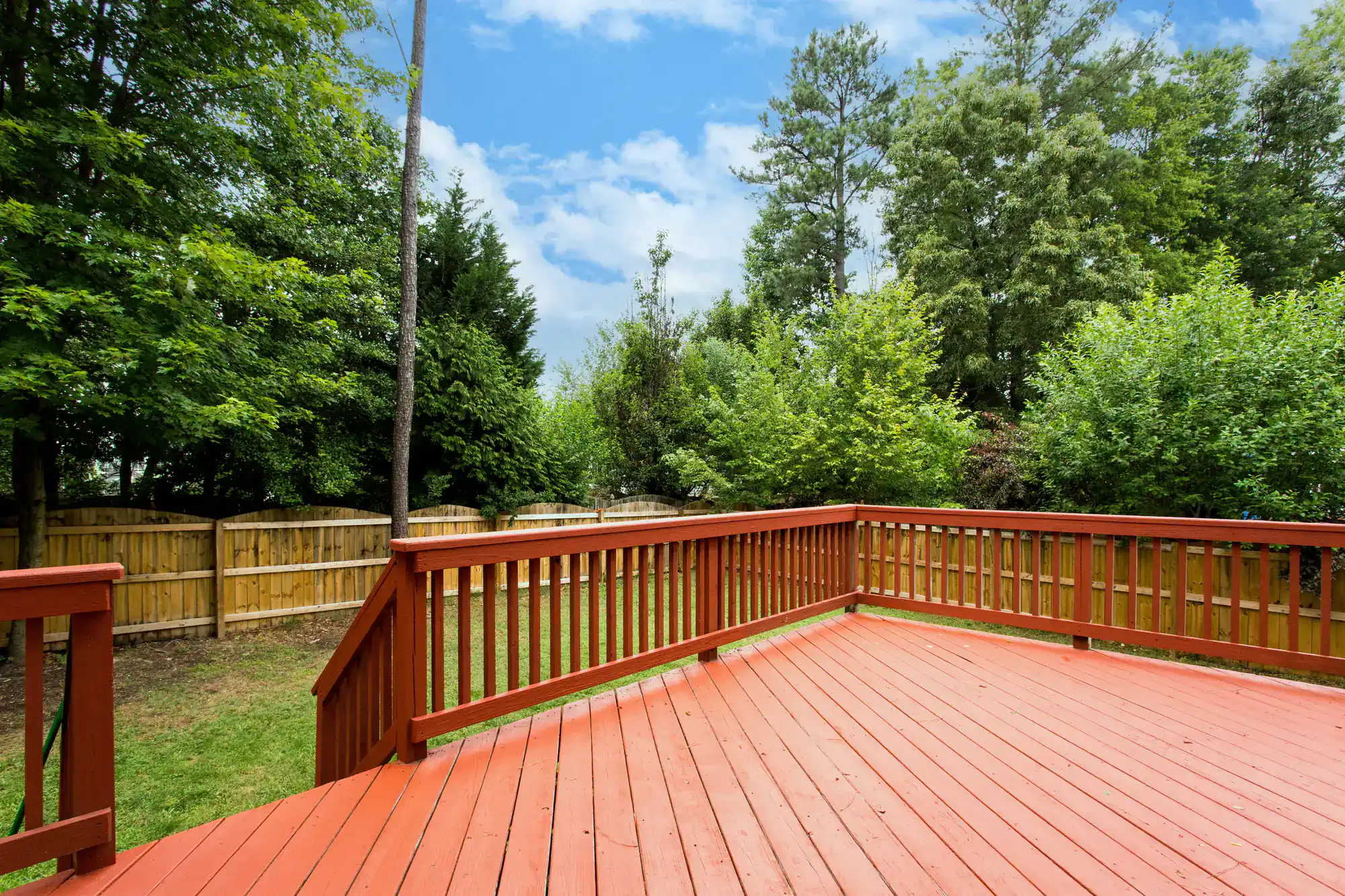
Yes, you need a permit for deck construction in Yaphank and throughout Suffolk County. The local building department requires permits for any structural changes to your property, including deck installation.
Building without a permit can result in significant fines and may require you to remove the deck entirely. We’ve seen homeowners face costly consequences when they try to skip this step. Beyond the legal requirements, permits ensure your deck meets safety standards and building codes.
We handle all permit applications for you, including submitting detailed plans with dimensions, materials, and construction methods. This eliminates the hassle and ensures everything is done correctly from the start.
Composite decking performs best in Long Island’s challenging coastal environment. It resists salt air damage, won’t rot or warp, and handles our humidity and temperature swings without the maintenance headaches of wood.
Traditional wood decking requires annual treatment to prevent graying, splintering, and warping—especially softer woods like cedar and redwood. Even pressure-treated lumber needs regular maintenance to perform well long-term.
Composite materials like Trex and TimberTech are engineered specifically for durability. They resist fading, scratching, and staining, making them ideal for poolside decks and high-traffic areas. The upfront cost is higher than wood, but you save significantly on maintenance over the deck’s lifetime.
Most residential deck projects take 3-5 days from start to finish, depending on size and complexity. Weather can affect the timeline, but we work efficiently to minimize disruption to your daily routine.
The permit process adds time upfront—typically 2-3 weeks for approval in Suffolk County. We submit applications early and keep you updated on progress. Once permits are approved, we schedule installation based on your preferences and weather conditions.
Complex designs with multiple levels, built-in features, or challenging site conditions may take longer. During our initial consultation, we’ll give you a realistic timeline based on your specific project requirements.
Composite decking requires minimal maintenance compared to wood. A simple wash with soap and water 2-3 times per year keeps it looking new. No staining, sealing, or painting is ever required.
For deeper cleaning, use a mild detergent and soft brush to remove any stubborn dirt or debris. Avoid power washing, which can damage the surface and void warranties. Most manufacturers provide specific cleaning guidelines for their products.
The newest composite materials resist scratches, stains, and fading even in high-traffic areas. This means your deck maintains its appearance for decades with just basic cleaning—a significant advantage over wood decking that needs annual treatment.
Yes, we handle deck repairs and board replacement for both wood and composite decking. Often, the underlying structure is sound and only the surface boards need attention.
For wood decks, we can replace damaged boards, refinish surfaces, and upgrade to composite materials if you want to reduce future maintenance. We match existing materials and finishes as closely as possible for seamless repairs.
Composite deck repairs are less common due to the material’s durability, but we can replace individual boards if needed. We work with all major manufacturers and can source matching materials even for older installations.
Deck installation costs vary based on size, materials, and complexity. Composite decking typically costs more upfront than wood but saves money long-term through reduced maintenance requirements.
We provide detailed, written estimates that break down material and labor costs clearly. No surprises or hidden fees—you’ll know exactly what you’re paying for before we start work.
During our consultation, we’ll discuss your budget and recommend materials and designs that give you the best value. We work with homeowners at different price points and can suggest alternatives if the initial design exceeds your budget.